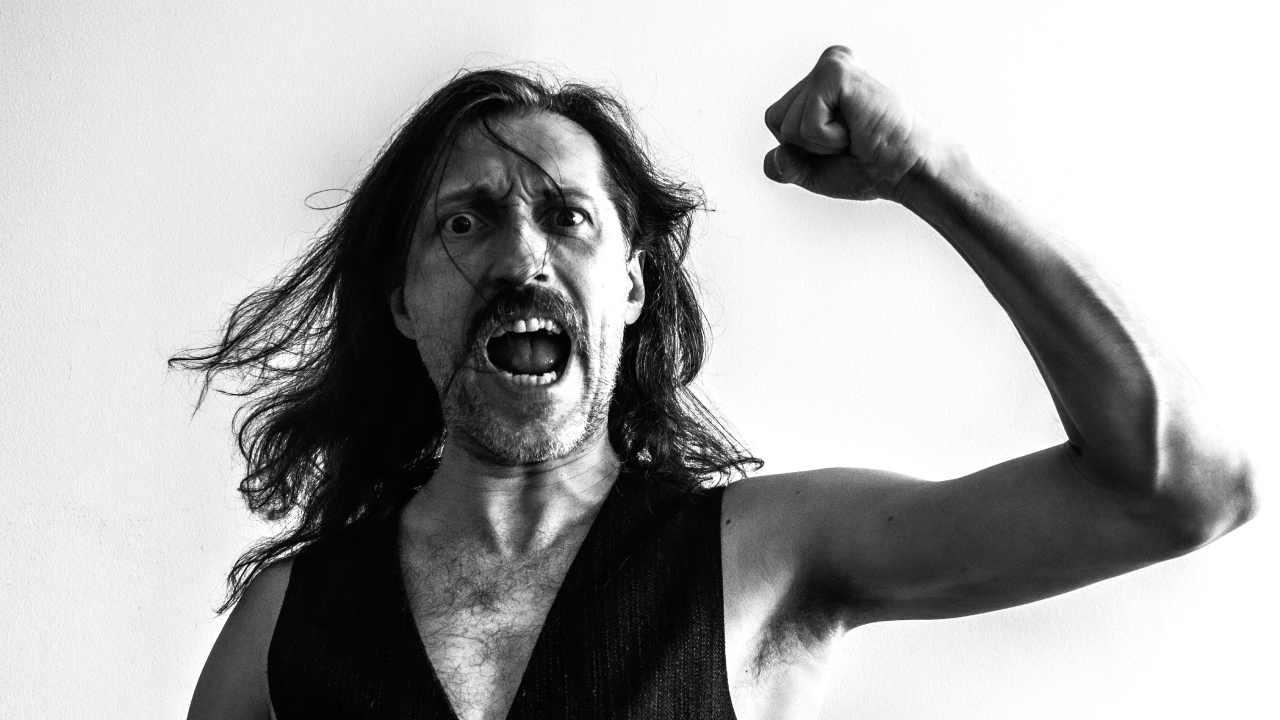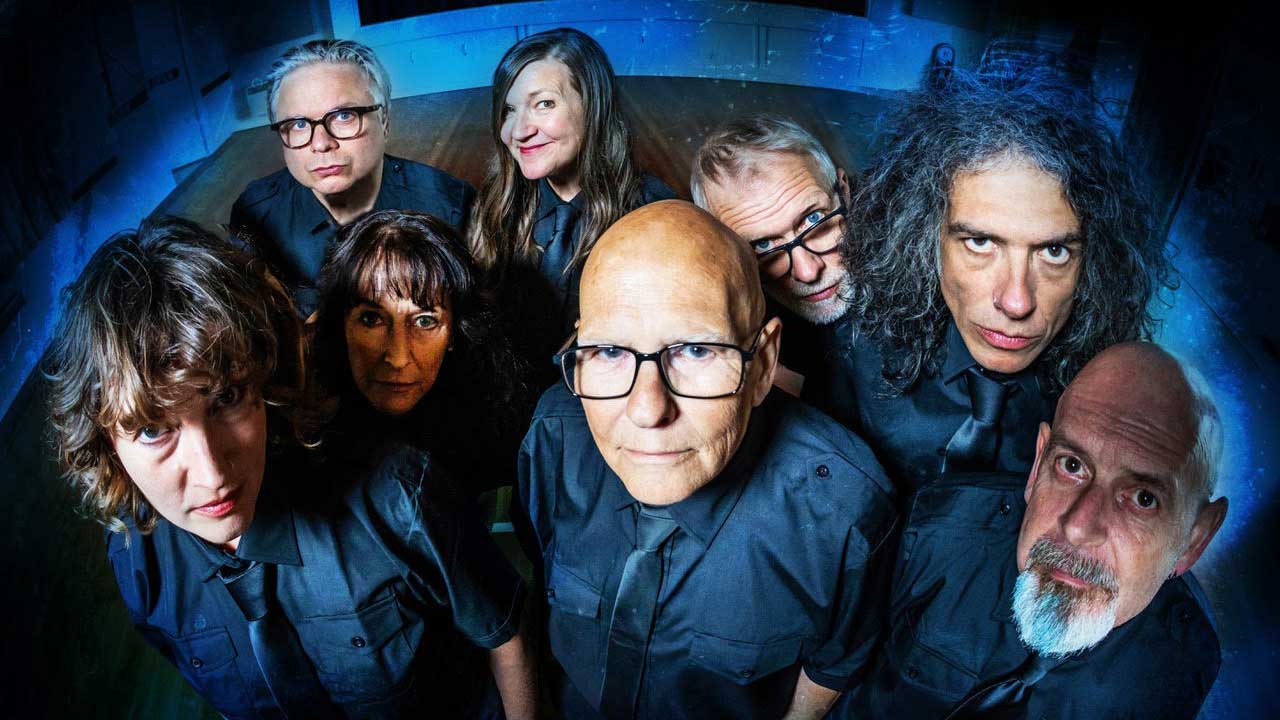Gogol Bordello's Eugene Hütz on Ukraine and the power of punk-rock resistance
"As an art form that can catapult socio-political observations – there is nothing greater than punk rock" - Eugene Hütz

Select the newsletters you’d like to receive. Then, add your email to sign up.
You are now subscribed
Your newsletter sign-up was successful
Want to add more newsletters?

Every Friday
Louder
Louder’s weekly newsletter is jam-packed with the team’s personal highlights from the last seven days, including features, breaking news, reviews and tons of juicy exclusives from the world of alternative music.

Every Friday
Classic Rock
The Classic Rock newsletter is an essential read for the discerning rock fan. Every week we bring you the news, reviews and the very best features and interviews from our extensive archive. Written by rock fans for rock fans.

Every Friday
Metal Hammer
For the last four decades Metal Hammer has been the world’s greatest metal magazine. Created by metalheads for metalheads, ‘Hammer takes you behind the scenes, closer to the action, and nearer to the bands that you love the most.

Every Friday
Prog
The Prog newsletter brings you the very best of Prog Magazine and our website, every Friday. We'll deliver you the very latest news from the Prog universe, informative features and archive material from Prog’s impressive vault.
Since forming in 1999, Gogol Bordello have become synonymous with the term ‘gypsy punk’. Led by Eugene Hütz – who left Kyiv as a youth with his family, ending up in New York – the multinational collective became known for riotous good times set to Romani beats, riddled with sweat and boozy subversion.
Named after Nikolai Gogol, a writer of Ukrainian origin but widely claimed by history as Russian, Gogol Bordello hid their Ukrainian-ness in plain sight. Following Putin’s invasion, it’s come into the spotlight.
“It was all the time a ‘fuck you’ to Moscow,” the wiry, generously moustached frontman tells us. “Now it’s only getting louder.”

It must be a bittersweet feeling to have people who previously knew very little about Ukraine paying closer attention to it now, but under such terrible circumstances.
Exactly. Let’s not get it twisted. Even though Ukrainians are kicking ass and are as resilient as fuck, they’re still going to hell; the price is still high. And of course everyone wishes there was another way of taking this heritage back.
You’ve become a gateway to Ukrainian culture. How does that role sit with you?
I mean, I did sign up for it when I called the band Gogol Bordello, but the extremity of the situation now, this calls to rip that Ukrainian humility off. Humility is a distinct trait of Ukrainians, to the point that it became detrimental. It came down to people like me, now, uncovering simple facts known to every Ukrainian; like Andy Warhol and [ice hockey star Wayne] Gretzky and Nudie Cohn [‘nudie suit’ designer] are all Ukrainian. The Ukrainian story, in a way, is yet to be properly told.
Sign up below to get the latest from Classic Rock, plus exclusive special offers, direct to your inbox!
Solidaritine, the band’s ninth album, feels like a return to your punk roots.
Punk rock never left my table. Most of my friends from when we got into it at thirteen-to-fourteen years old got into electronic music. I was the guy they made fun of because I’d still pull out those Punk And Disorderly compilations with GBH and Angelic Upstarts, all the bands that had this knack for catapulting that Woody Guthrie protest music. For someone of my energy levels – as an art form that can catapult socio-political observations – there is nothing greater than punk rock.
With songs like Knack For Life and Take Only What You Can Carry, how much came from your earlier life, versus the past two years?
It’s all from the last couple of years, because we were all subjected to some testy times. So it’s like, what’s the ‘resilience toolbox’ here? You’re forced to reflect in a way that needs results. Some of it was just looking at lives of people in my family, who demonstrated such an uplifting knack for life. It puts my family’s immigrant experience into a very do-able perspective, compared to the shit they went through – growing up in Holodomor [the Great Famine, in the 1930s] times in Ukraine, then going to World War Two... It’s kind of unthinkable for modern people.
How are your family in Ukraine doing?
They’re staying strong, everybody’s okay. Talking about war in Ukraine when you are there, and outside of Ukraine, it’s two very different things. Some people experience extreme devastation in occupied territories. However, it’s important to understand that the Ukrainian spirit, since the beginning of it, was nowhere near petrification. The rest of the world was running around thinking: “What is going to happen?” In Ukraine everybody knew what was going to happen: we’re gonna win. That’s what’s gonna fucking happen.
How do you feel about the world’s response to the conflict at this point?
I appreciate people’s compassion, going: “I’m so sorry to hear what your country’s going through.” That’s nice to hear, but it doesn’t really acknowledge the situation on a real level. A lot of people come from a good place, and then they get emotional, like: “Oh I don’t know what to do.” Which isn’t really helpful. Just find small things you can do, and do it; stop talking about it.
Earlier this year you sang the Ukrainian anthem at a New York benefit with Patti Smith. How did you two meet?
We were living in the same area. Eventually we were playing the same bills, and we met at the Tibet House Foundation. So when this situation came up, I reached out to people who were active with Free Tibet, and Patti was one of the leading people. That was the first event that got serious results. It was really important to hear it from iconic people, who have a serious track record of being righteous, to get on the side of Ukraine.
You’ve also performed for troops in Ukraine, with soldiers playing in your band.
This Ukrainian army is fighting a very modern form of activity. It has no locations, it’s constantly dislocated, that’s why they’re winning. It was really impressive how efficient it was. The amazing thing was to see our music serving a purpose; the military band guys asked if they can keep playing the songs, as they go around front lines and perform.
That was probably the highest proof of its [our music’s] worth. Don’t get me wrong, it was still completely spooky and stressful. But once we got there we completely lost ourselves, bonding with these guys who still lose themselves in music, talking about life, and... and then [they] just go straight back to the trenches.
You’ve talked about punk being a “cultural corridor”, but perhaps it’s more than that.
It speaks for itself that the first band to put out a song in support of Ukraine who was not Ukrainian was Sick of It All, the New York City iconic hardcore band. Three days into the war they had a song called God Save Ukraine. And I was like: “Of course.”
Solidaritine is out now via Cooking Vinyl.

Polly is deputy editor at Classic Rock magazine, where she writes and commissions regular pieces and longer reads (including new band coverage), and has interviewed rock's biggest and newest names. She also contributes to Louder, Prog and Metal Hammer and talks about songs on the 20 Minute Club podcast. Elsewhere she's had work published in The Musician, delicious. magazine and others, and written biographies for various album campaigns. In a previous life as a women's magazine junior she interviewed Tracey Emin and Lily James – and wangled Rival Sons into the arts pages. In her spare time she writes fiction and cooks.
